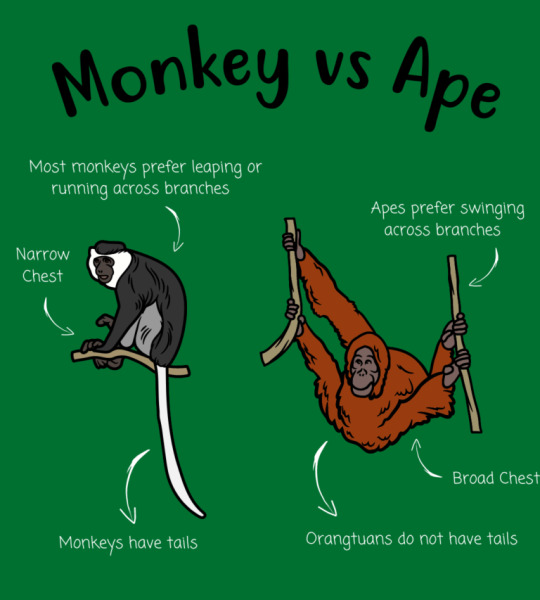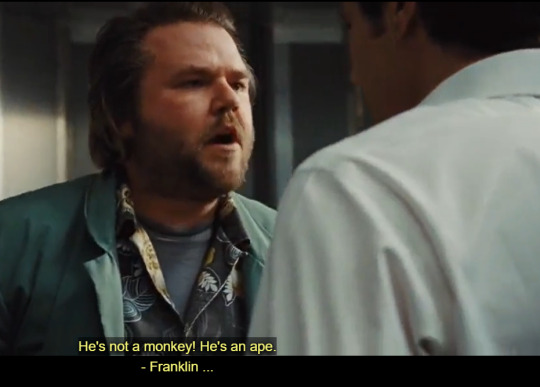#model credibility
Explore tagged Tumblr posts
Text
How Credible are FE Car Crash Simulation Models?
Car crash simulation is performed by means of explicit Finite Element models, containing many millions of elements. These models are computationally intensive and parallel computing is used to perform the task. Evidently, the reason car crash is simulated in computers is to reduce and/or avoid expensive physical testing. Abundant literature is available on the subject. The present blog will…
#car crash#Complexity#complexity map#Computer simulation#crash test#Finite Elements#model complexity#model credibility#QCM
0 notes
Text
one of my boyfriend’s lecturers always includes his pet dog (Kevin) in his questions and assignments and it makes me so happy. he just sent me his most recent question:
“5. Your pet dog Kevin eats a certain amount of dog food every day. His food comes in a big bag and consists of small dry biscuits that weigh about 5 grams each. All biscuits look the same to you, you can’t see any difference between slightly lighter and slightly heavier ones. the past two days you have kept track of how much food you have given Kevin and that data looks as follows:

It is time to give Kevin his food for today. You want to give him 525 grams, but unfortunately the battery in your scales is empty and hence you can’t weigh his food.
You decide to use credibility theory to design a model for the weight of the biscuits, and then compute the number of biscuits you should give Kevin to get as close as possible to the desired total of 525 grams...”
#weeping at 'you decide to use credibility theory to design a model'. girl just buy a new battery for your scale. get a manual scale#me#ramblings#mathematics#my answer was give Kevin all of the biscuits btw. infinite biscuits#infinite biscuits for the big doggo - michael nesmith
2 notes
·
View notes
Text
Reliable predictions of non-Newtonian flows of sludge
Regular readers of this blog will be aware that I have been working for many years on validation processes for computational models of structures employed in a wide range of sectors, including aerospace engineering [see ‘The blind leading the blind’ on May 27th, 2020] and nuclear energy [see ‘Million to one’ on November 21st, 2018]. Validation is determining the extent to which predictions from…

View On WordPress
#CDT#credibility#Engineering#fluid flow#fluid mechanics#fluids#mechanics#model validation#MyResearch#nuclear energy#PhD#PhD opportunity#PhD vacancy#research#simulation#sludge#validation
2 notes
·
View notes
Text
Online Everything DiSC Certification

Achieve professional excellence with Wiley’s Online DiSC® Certification! Learn to foster collaboration and drive team success.
#DiSC Model for Workplace Success#John Wiley & Sons Certification#Credible Online Certification#Career Advancement Programs#DiSC Theory and Practical Application#SHRM Credential Certification#Leadership Excellence Training#Cohesive Organizational Culture#Flexible Learning for Professionals
0 notes
Text
One thing to say to these people - it's none of your fucking business.

Katie Britt's breathy fundie baby voice and overacting come across like a serial killer.
Republicans already want to know when your teenager is menstruating.
They want to check genitals for sports, too.
Do you get how fcuked up this is?
#war on women#us politics#right wing extremism#abusive patriarchy model of society#FUBAC fucked up beyond all credibility
494 notes
·
View notes
Text
Saw a comment on Bluesky under an article that was like "You don't have to write an article on everything rich people waste their time on" and I'm starting a task force to sneak-tattoo that onto the hands of every editor for a major publication who's in
#the article was an update on that dumbfuck ai beauty contest#and people were passing around a quote from one of the 'designers'#where the guy (bc of course it's a guy) was like ai models let you do anything and theyre less expensive and they dont talk back#like. you do not have to lend credibility or your platform to stupid shit like this#but lbr if elon musk sent out a press release for some creatively defunct fanfiction he 'wrote' using ChatGPT#a lot of press orgs would still type it up bc 'well the others are gonna have it so we need it too'#you dont. none of you need it. literally no one NEEDS to know anything about this stupid shit
0 notes
Text
Three people blocked on Facebook for that post. Like, I knew there was going to be a shit storm, but not like this.
If you're going to sling wild accusations at me, at least make them funny.
#dispatches#original content? on this blog?#kiri rambles#if youre going to accuse me of shit#be credible#i've sold models for years#none of mine are that dirty#i swear breyer facebook drama is like TLK Instagram drama#y'all are so stupid!!!#i KNEW the price would go up#WHY DO YOU THINK I ASKED IF HE WAS WORTH $$$$#jesus fuck
0 notes
Text
This is going to get me screencapped and ridiculed by leftblr but at this point I don't care.
The way people talk about Ruth Bader Ginsburg is misogynistic. This post is not about the merits of her decision to remain in her seat. I've discussed that before and I'm happy to go through it again with anyone who is genuinely interested in the complexities of that situation, but for the sake of this post, I am not arguing that it's unreasonable to believe, with the benefit of hindsight, that the country would be a in a better position today if Ginsburg had retired in 2012. The issue I want to address is how people talk about it.
People who blame Ginsburg for the current state of the Supreme Court tend to throw around words like greedy, selfish, and ambitious, echoing a familiar form of misogyny. Ambition is only bad when women demonstrate it, and women in politics are regularly punished for ambition. Even more disturbingly, people tend to blame not just Ginsburg, but the women and girls who looked up to her. I've seen the "Notorious RBG" nickname derided as a cult of personality, when the reality is that Ruth Bader Ginsburg was a trailblazer and a role model to a lot of women and girls. I've seen leftists try to hide behind valid criticisms of some of Ginsburg's positions (and it should, but doesn't, go without saying that you can see someone as a role model without believing they are correct about every issue all the time) but you barely have to scratch the surface to see that the real complaint is that they think women who admire her are cringe. I don't know if people understand how significant she was; she was only the second woman on the Supreme Court and the first, Sandra Day O'Connor, was a conservative Reagan appointee. Even so, Justice O'Connor spoke about the significance of Justice Ginsburg joining her and reality that women faced in their position being more apparent when she could see it happening to someone else. It's the same old anti-feminist story of dismissing women and their desires.
This particular case rankles me because it's underscored by the complete silence about Anthony Kennedy. Ruth Bader Ginsburg made a judgment call about her health that didn't work out--and barely; she died four months before Trump left office. Anthony Kennedy, a supposed moderate justice who claimed to not want Roe v Wade to be overturned, retired in 2018, knowing full well Trump would replace him with someone who would overturn Roe v Wade. It was Kennedy's replacement, not Ginsburg's, that doomed Roe. The decision was 6-3. If Ginsburg had lived four more months, or retired in 2012 and been replaced with an Obama appointee, the Dobbs v Jackson decision would have been 5-4 in the same direction. Anthony Kennedy was replaced with Brett Kavanaugh, a white man who sobbed crocodile tears when confronted with credible allegations of sexual assault and ultimately faced no consequences. Anthony Kennedy let all of this happen and slunk off into his cushy retirement. Where is the anger for him? He's alive! Being angrier at Ginsburg than Kennedy makes absolutely no sense. There is no logic to explain it, only misogyny.
It doesn't escape my notice that the anger at Ginsburg goes hand-in-hand with blaming women for their own suffering as a result of the Dobbs decision and with blaming Hillary Clinton for the 2016 election, while making any excuse for not voting for her or deriding her for months. It's emblematic of a political system that does not care about women and despises women trying to speak up and make our issues known.
855 notes
·
View notes
Text
Computer-Aided Engineering, AI and the Bad News
Models are only models. Remember how many assumptions one must make to write a partial differential equation (PDE) describing the vibrations of a simple beam? The beam is long and slender, the constraints are perfect, the displacements are small, shear effects are neglected, rotational inertia is neglected, the material is homogenous, the material is elastic, sections remain plane, loads are…

View On WordPress
#CAE#car crash#Complexity#complexity management#Computer Aided Engineering#HPC#model complexity#model credibility#model validation#Principle of Incompatibility#strong coondition
1 note
·
View note
Text
idk man i know times are hard but i can't help but feel that watcher putting all their eggs in the basket that is their own streaming service is a bad call. like sure i totally get wanting a platform where you have full control both creatively and financially but i feel they might be misjudging how much loyalty non-hardcore fans might have for what they're creating. in every internet fandom there's a subsection of people willing to pay with actual money to support the creators they enjoy, and that's what services like patreon are for. but to expect that casual viewers will sign up and pay a monthly fee to get access to just watcher content when a large portion of them were likely just watching the content because it was free and accessible on youtube assumes that someone who isn't a diehard fan won't just go "oh well" and find something else on youtube that IS still free? that seems like a miscalculation to me. the massive fanbases online content creators have may literally be only possible because the content is available to anyone-- it seems foolish to assume that every single one of those fans is going to stick around once you try to upsell them.
i hope this new venture goes well for the watcher crew. I really do. but i also know that a lot of brands and startups that bank on the loyalty they earned when their product was free or low cost and expect that to sustain them while they try to do something that historically has not gone well for the vast majority of businesses. at best, they'll have halved their fanbase by alienating those who can't or don't want to pay and made it much more difficult for remaining fans to create fandom products like memes or gifs that promote their shows on social media. at worst, they'll discover in the near future the independent streaming service model is unsustainable with only the fans they have left and by that point they'll have already deleted themselves from youtube and made it impossible to come back to the level of success they had before. any attempt to return to youtube will be an admission of a critical miscalculation and i doubt many remaining fans will tolerate the back and forth. they'll have crippled their credibility, relevancy, and fanbase loyalty over a very short period of time-- and i don't know if it would even be possible to come back and still be beloved after all that.
worst of all-- if the watcher streaming service crashes and burns after they've already removed all their content from youtube, all the watcher shows are essentially going to become lost media, only accessible via reuploaders willing to risk a copy strike or if you know someone who has a copy downloaded. given how genuinely good the watcher content is in the sea of lackluster youtube mush, that really seems like a damn shame.
i hope the watcher team sees how everyone is responding and decides to course correct before it's too late and get away with only the hit to their reputation that they've already taken by announcing this, instead of pushing forward on a path that might lose them everything instead. nothing i've said here is with any hate intended toward anyone involved or those who are excited about the new service, but this just seems like a really ill-advised decision to me.
#watcher#watcher tv#i'm not really mad or sad and like i said none of this is said with ill intent#but yeah i think they should have market tested this idea first
1K notes
·
View notes
Text
"Reviewers told the report’s authors that AI summaries often missed emphasis, nuance and context; included incorrect information or missed relevant information; and sometimes focused on auxiliary points or introduced irrelevant information. Three of the five reviewers said they guessed that they were reviewing AI content.
The reviewers’ overall feedback was that they felt AI summaries may be counterproductive and create further work because of the need to fact-check and refer to original submissions which communicated the message better and more concisely."
Fascinating (the full report is linked in the article). I've seen this kind of summarization being touted as a potential use of LLMs that's given a lot more credibility than more generative prompts. But a major theme of the assessors was that the LLM summaries missed nuance and context that made them effectively useless as summaries. (ex: “The summary does not highlight [FIRM]’s central point…”)
The report emphasizes that better prompting can produce better results, and that new models are likely to improve the capabilities, but I must admit serious skepticism. To put it bluntly, I've seen enough law students try to summarize court rulings to say with confidence that in order to reliably summarize something, you must understand it. A clever reader who is good at pattern recognition can often put together a good-enough summary without really understanding the case, just by skimming the case and grabbing and repeating the bits that look important. And this will work...a lot of the time. Until it really, really doesn't. And those cases where the skim-and-grab method won't work aren't obvious from the outside. And I just don't see a path forward right now for the LLMs to do anything other than skim-and-grab.
Moreover, something that isn't even mentioned in the test is the absence of possibility of follow up. If a human has summarized a document for me and I don't understand something, I can go to the human and say, "hey, what's up with this?" It may be faster and easier than reading the original doc myself, or they can point me to the place in the doc that lead them to a conclusion, or I can even expand my understanding by seeing an interpretation that isn't intuitive to me. I can't do that with an LLM. And again, I can't really see a path forward no matter how advanced the programing is, because the LLM can't actually think.
#ai bs#though to be fair I don't think this is bs#just misguided#and I think there are other use-cases for LLMs#but#I'm really not sold on this one#if anything I think the report oversold the LLM#compared to the comments by the assessors
552 notes
·
View notes
Text
Apes are a kind of monkey, and that's ok
This is a pet peeve of mine in sci comm ESPECIALLY because many well respected scientific institutions are insistent about apes and monkeys being separate things, despite how it's been established for nearly a century that apes are just a specific kind of monkey.
Nearly every zoo I've visited that houses apes has a sign somewhere like the one below that explains the supposed distinction between the two groups, focusing on anatomy instead of phylogeny.

(Every time I see a graphic like this I age ten years) Movies even do this, especially when they want to sound credible. Take this scene from Rise of the Planet of the Apes:

This guy Franklin is presented as the authority on apes in this scene, and he treats James Franco calling a chimpanzee a monkey like it's insulting.
But when you actually look at a primate family tree, you can see that apes are on the same branch as Old World monkeys, while New World monkeys branched off much earlier.

(I'm assuming bushbabies are included as "lorises" here?)
To put it simply, that means you and I are more closely related to a baboon than a baboon is to a capuchin.

Either the definition of monkey includes apes OR we can keep using an anatomical definition and Barbary macaques get to be an ape because they're tailless.

"I've got no tails on me!"
SO
Why did all this happen? Why did we start insisting apes are monkeys, especially considering the two words were pretty much interchangeable for centuries? Well I've got one word for ya...

This the attitude that puts humans on a pedestal over other life on Earth. That there are intrinsically important features of humanity, and other living things are simply stepping stones in that direction.
At the dawn of evolutionary study, anthropocentrism was enforced by using a model called evolutionary grades. And boy howdy do I hate evolutionary grades.
Basically, a grade is a way of defining a group of animals by using anatomical "complexity". It's the idea that evolution has milestones of importance that, once reached, makes an organism into a new kind of thing. You can almost think of it like evolutionary levels. An animal "levels up" once it gains a certain trait deemed "complex".
You can probably see the issue here; that complexity is an ephemeral idea defined through subjectivity, rather than based off anything truly observable. What makes walking on 2 legs more complex than walking on four? How are tails less complex than no tails? "Complexity" in this context is unmeasurable, therefore it is unscientific. That's why evolutionary grades suck and I never want to look at one.
For primates, this meant once some of them lost their tails, grew bigger brains, and started brachiating instead of leaping, they simply "leveled up" and became apes. Despite the early recognition that apes were simply a branch of the Old World monkey family tree (1785!), the idea of grades took precedent over the phylogenetic link.
In the early years of primatology, humans were even seen as a grade "above" apes, related but separated by our upright stance and supposed far greater intelligence (this was before other apes were recognized tool users).

It wasn't until the goddamn 1970s that it was recognized all great apes should be included in the clade Hominidae alongside humanity. This was a major shift in thinking, and required not just science, but the public, to recognize just how close we are to other living species. It seems like this change has, thankfully, happened and most institutions and science respecting folks have accepted this fact. Those who don't accept it tend to have a lot more issues with science than only accepting humans as apes.

And now, we come to the current problem. Why is there a persistent idea that monkeys and apes are separate?
I want to make it clear I don't believe there was a conscious movement at play here. I think there's a lot of things going on, but there isn't some anti-monkey lobby that is hiding the truth. I think the problem is more complicated and deals with how human brains and human culture often struggle to do too many changes at once.
Now, I haven't seen any studies on this topic, so everything I say going forward is based on my own experience of how people react to learning apes (and therefore, humans) are monkeys.
First off, there is a lot of mental rearranging you have to do to accept humans as monkeys. First you, gotta accept humans as apes, then you have to stop thinking in grades and look at the family tree. Then you have to accept that apes are on the Old World monkey branch, separate from the New World monkeys.
That's a lot of steps, and I've seen science-minded zoo educators struggle with that much mental rearranging. And even while they accept this to an extent, they often find it even harder to communicate these ideas to the public.
I think this is a big reason why zoos and museums often push this idea the hardest. Convincing the public humans are apes is already a challenge, teaching them that all apes are monkeys at the same time might seem impossible.
I believe the other big reason people cling to the "apes-aren't-monkeys" idea is that it still allows for that extra bit of comforting anthropocentrism. Think of it this way; anthropocentrism puts humans on a pedestal. When you learn that humans are apes, you can either remove the pedestal and place humans with other animals, OR, you can place the apes up on the pedestal with humanity. For those that have an anthropocentric worldview, it can actually be easier to "uplift" the apes than ditch the pedestal.
Too make things worse, monkeys are such a symbol of a "primitive" animal nature that many can't accept raising them to the "level" of humanity, but removing the pedestal altogether is equally painful. So they hold tight to an outdated idea despite all the evidence. This is why there's often offense taken when an ape is called a monkey. It's tantamount to someone calling you a monkey, and that's too much of a challenge to anthropocentrism.
Personally, I think recognizing myself as a monkey is wonderful. Non-ape monkeys are as "complex" as any ape. They make tools, they have dynamic social groups, they're adapted to a wide range of environments, AND they have the best hair of all primates.
I think we should be honored to be considered one of them.



3K notes
·
View notes
Text
Writing Tips: An Unforgettable Villain

A villain is the antagonist of your story whose motivations and actions oppose the protagonist and drive the plot of your story.
A villain is the opposite of a hero. In contrast to the hero, a villain is usually compelled by a desire to commit acts of cruelty and immorality.
Bestselling author Dan Brown advocates for writing your villain first—even before your hero—because it is the villain who will make the hero heroic.
Tips for Writing a Great Villain in Your Novel
Choose a real-life model. Find a real person to model your villain after. It could be someone you know, a person from history, or a famous serial killer. Try writing a brief character sketch in which you list their positive and negative attributes, their physical appearance, and their state of mind. Once you’ve done some brainstorming, be sure to differentiate your fictional character from your real-life model (you don’t want to get sued!). You can do this by changing identifiable elements like name, age, and specific actions or events.
Put yourself in their shoes. When it’s time for your villain to act, put yourself in their place. Think about challenges or hardships that might tempt people to act out or behave badly. How do you react to bad things? Tap into those emotions and try to apply them to your villain.
Consider their motivation. Just like with your main character, determining your antagonist’s motivation can help you unlock other aspects of their character, such as their goals and their personality.
Introduce a villain with a bang. A strong introduction to your villain sends your reader a clear message that this character is malicious. In Charles Dickens’ David Copperfield features an unforgettable introduction to antagonist Uriah Heep, whose seeming politeness is overshadowed by a face so shocking and ugly that it is described as “cadaverous.” His introduction immediately establishes the character as a villain.
Characteristics of a Good Villain
Every great hero needs a great villain. Villains are the antagonistic force of your story that challenges your hero and drives the action. Most great villains share a common set of characteristics.
Strong connection to the hero. The best villains are inextricably connected to the hero, and aid in the hero’s character development through their inherent opposition to them.
Clear morality. Every villain needs to have his own morality. If a villain spends part your story killing people, you need to give him or her believable reasons for doing so. Make the reader understand exactly what desperation or belief has driven him to it. For instance, in Ray Bradbury’s dystopian novel Fahrenheit 451, primary antagonist Captain Beatty’s mission is to find and destroy books because he believes that books cause people to reject the stability and tranquility of a life of conformity. He has a strong moral point of view, and the reader believes that he believes he is doing the right thing by trying to burn books. After all, every villain believes they are the hero of their own story.
A worthy opponent. A great villain should be a strong and worthy adversary to your hero. They shouldn’t be weak and easily beaten, nor should they be so powerful that they can only be defeated by random chance. In Sherlock Holmes, his arch-nemesis Moriarty is a criminal mastermind who is every bit as smart as Sherlock. Having a villain who is in many ways equal in skill and intelligence to your hero will raise the stakes of their encounters, as it creates a credible threat that your hero might be bested.
Compelling backstory. Any good villain should have an interesting and credible backstory. In addition to creating a deep and more three-dimensional villain, a memorable backstory allows ourselves to identify and even sympathize with the villain. For example, the Gollum character in The Lord of The Rings trilogy used to be a normal hobbit until he was corrupted by the power of the One Ring. In addition to deepening the character by showing us the full breadth of his journey from virtuousness to wickedness, Gollum’s backstory forces us to consider how we are sometimes tempted by bad or unethical forces in our own lives.
Villains should be fun. Let’s face it: evil villains are fun. In Thomas Harris’ Silence of the Lambs, readers hold their breath whenever Hannibal Lecter appears on the page. Whether it’s their black-hearted sense of humor or their odious worldview, our favorite villains possess qualities that we love to hate.
Source ⚜ More: References ⚜ Writing Resources PDFs ⚜ Villains
#villain#character development#writing tips#writeblr#literature#writers on tumblr#writing reference#dark academia#spilled ink#writing prompt#creative writing#writing advice#character building#writing inspiration#light academia#writing ideas#writing resources
117 notes
·
View notes
Text
There's a real unearned confidence to the way that Social Democrats talk about their ideology, like they've cracked the code and found the perfect way forward and the only reason people disagree is because they're misguided or evil. Like they'll correctly point out problems within Neoliberal Capitalism before spouting some absolute nonsense about how uniquely evil and dysfunctional Communism was (nearly always in the past tense too; they take it for granted that the end of the USSR was the end of all Communism) and then going "Don't worry though, there's a third way; a mixed regulated economy. We can have a free market in consumer goods while making sure that corporations pay their fair share in wages and taxes that can fund the welfare that looks after everyone". And like putting aside the fact that such a model relies on the super-profits of imperialist exploitation to actually function, and the inherent instability of an arrangement where the Bourgeoisie make concessions even while maintaining ultimate control of the economy, there's the simple fact that much of the Imperial Core did indeed had Social Democracy but does not anymore.
Like these Social Democrats never think about why that might be, why their ideology failed and what they can learn from it going forward. They just act as though some dumb individuals (i.e. Ronald Reagan, Milton Friedman etc.) managed to slip into power and make bad decisions and like the best way to fix this is to vote good people in who'll change it back. Like hell a lot of these people take the previous existence of these policies as like a good point, the whole "We had them before so we aren't being radical by wanting them back. We don't want anything crazy we just wanna bring back The New Deal or Keynesian Economic policy or whatever". There's never any thought about why those policies failed (how often do you hear these people even talk about "stagflation" or "the oil crisis" let alone the impact of the fall of the soviet union) and what implications this might have on the viability of bringing it back. They also love talking about how Social Democratic institutions are still largely intact in the Scandinavian countries, but rather than even consider what specific factors in their political-economic situation led to this these people just go "Damn isn't Sweden great. Why aren't we doing exactly what they do?"
And sure some people might compare this to Marxism-Leninism, the whole "trying to bring back a defeated ideology", but for one it's stupid to treat the dissolution of the USSR as the end of Communism as a global political force. It may have been a major blow, but even if you write off like Cuba and Vietnam as too small and insignificant to matter you can't just fucking ignore that over 1/6 of the world's population continues live under a Marxist Leninist party. Whatever concessions these countries may have made to global Capitalism, it's just plain ignorant to act as though Communism suffered anywhere near the humiliating loss of global power and credibility that Social Democracy has. Sure the latter may be more politically acceptable to toy with in "The West", but "The Western World" ≠ The Entire World. Also, nearly every ML on the planet is painfully aware that Soviet Communism collapsed and that it collapsed for a reason. There might be plenty of contention about why exactly it died and what exactly we can learn from this, but nearly everyone agrees that we need to learn and ideologically grow. No serious Communist wants to "bring back the USSR" in the same way that many Social Democrats want to "bring back The Welfare State". Far from being a form of "best of both worlds" mixed economy, Social Democracy is nothing more than a flimsy tool to stabilise Imperialist Capitalism at its moments of greatest strain. And if people are still gonna promote it wholeheartedly as the best possible solution, I wish they'd be a little less arrogant about it. It's not as though they have history on their side
336 notes
·
View notes
Text
Agency, value systems, and growth: the fate of the Perfect Court tattoos.
Been thinking about the Perfect Court tattoos today, and I’ve finally decided what I personally hope happens to Jean’s. I know there's a lot of discussion about a cover up like Kevin’s, suggestions like a flower, a sun, a fleur-de-lis; and I see that, but I raise you: he gets it completely removed.
I think it has something to do with what the tattoos mean to each character. More specifically, how each character got them, and what that means to them. Most of this comes from a quote I found on my last re-read of TKM:
The first time someone asked about Riko’s and Kevin’s tattoos, Riko hadn’t beat around the bush. He was the best striker in the game, he said, and he wanted everyone to know it. The story changed a little when Jean made his first public appearance with a “3” on his face. Riko was supposedly handpicking the future US National Team. He called it the ‘perfect Court’, and even though it was unofficial and unbelievably arrogant, his talent and upbringing gave some credibility to the idea. ‘
According to Neil in the first book, Riko and Kevin had been sharpie-ing on their numbers since they were children. This quote adds some more crucial context to that. It establishes that Riko and Kevin’s 1 and 2 came before the perfect court, and that the perfect court was what Riko decided their 1 and 2 (and newly minted 3) meant. This bit is what changed it for me, I think.
Riko and Kevin are both referred to as the sons of exy. Both are heirs to the game, Riko through his uncle and Kevin through his mother. They do it to signal their place in the world of exy– heirs, future best in the game, destined for greatness. And then Jean comes along, and Riko changes the narrative. He comes up with the perfect court, and tells the world. The perfect court are his chosen players (read: his property). It furthers his control and possession of Kevin, who is allowed to be excellent, just not better than Riko. Kevin can be good, he just has to be good Riko’s way, subscribe to RIko’s model of success.
Riko dies with his tattoo on his face. He dies clinging onto the idea of the perfect court, that he is the best, and that the only way to be the best is through pain and abuse. There is no real change for Riko in the series, so it fits that the way he’s marked himself (read: the way he defines himself) doesn’t change either.
Kevin gets his covered up with the infamous chess piece. For Kevin, the challenge is reclaiming the sport that is also his birthright. He is physically free of Riko and Tetsuji, but mentally, he isn’t. Even with states between them and a new team, he is still understandably afraid of standing up to Riko. It goes against the status quo that has been beaten into him, and it takes him a while to be able to fully leave them and their limits behind. What holds Kevin back is that his greatness has always been defined. It has been defined by Riko, upheld by Tetsuji. He can be second best, a Raven, a prince to Riko’s King. Kevin changes his tattoo right before the final game– in order to beat Riko, he has to first reject Riko’s hierarchy, the limiting belief that was forced onto him that Riko was best, Riko was king. To me, its extremely fitting that Kevin’s evolution involved him putting his own mark on his talent. Instead of challenging Riko for ‘King’, or for that 1, he invents his own symbol. For Kevin, it's a reclamation of a game that was always partially his– just on his terms now.
Neil’s tattoo gets burnt off by his father’s henchmen. This also fits well in my mind, because in my opinion, Neil’s number one challenge wasn’t actually Riko. Riko was Neil’s adversary, but Neil’s true terror was his father. The tattoos and their removal/evolution appear to be symbolic of the character’s growth, so it makes sense that Neil’s wasn’t on his face for long, and was taken off by (basically) his father. Each of the perfect court members had something keeping them trapped, things that wouldn’t let them grow into who they were supposed to be. Riko’s was the wound of his fathers rejection, and the toxicity created and maintained by Tetsuji. Kevin’s was Riko, and by extension Tetsuji. Neil’s is his father. Unlike Kevin, Neil’s not trying to be the best exy player in the sport. The sport makes him feel less like no one and nothing, and his continued playing is an expression of his will to live and his desire for personhood and a future. Neil wants better than what he has at the beginning of TFC, and the thing keeping him from that isn’t Riko. Sure, Riko is connected to the Moriyamas, and Ichirou owns his contract now, and Neil fights with Riko a lot. But to me, the thing that caused him real terror and stripped him of his personhood and autonomy was Nathan. Riko branded him with the 4, and Nathan’s people took it off, as if to say, “No, Riko isn’t who you have to reckon with, it’s me.” Neil’s internal fight was with being the butcher’s son, not with being number four.
Jean’s situation is best described by a line in the EC– Jean never asked for this.
In his own words, he loved exy, and was excited for what he thought was an opportunity to improve, but it doesn’t seem like he was ever vying for greatness. Then his father sold him, he was given the 3, and he was made perfect court.
Much like Neil, didn’t have a say in his involvement. Unlike Neil, Jean adopts the mentality and hierarchy of the perfect court as his truth. Riko’s estimation of his value becomes his own.
For Jean, the 3 has a lot to do with pain and self worth. In TSC, the only time Jean speaks positively about himself is when he calls himself perfect court, or when he talks about himself as a backliner. He has been conditioned that the only place he has worth is on the court. Nothing is important about him, just about what he is, the position he occupies. Where his personhood and bodily autonomy is denied over and over, his talent cannot be denied on the court. He is allowed to matter on the court, and nowhere else. In a sense, that 3 becomes the only thing about him that could be his.
The other thing about the 3 is that he didn’t ask for it, but he has bled for it. So much of his relationship with the Ravens is defined by his rank. Even though the Ravens do not like Jean as a person, they want to be his partner, to have that 4. The reason someone protects Jean from repeated sexual assault is that 3, and how it could lead to a 4. This is why Zane strikes a deal with him, why Grayson goes all the way to the Gold Court to hurt him. It is what the sexual assault from the backliners is blamed on. The 3 was given to Jean as a mark of something he didn't ask to be a part of, and then he was forced to fight tooth and nail to keep it. It became the defining part of his identity because he wasn’t allowed to have anything else. He wasn’t even allowed to have his name.
In my opinion, I think that the ultimate expression of Jean’s growth would be to take the tattoo off. He doesn’t have to subscribe to that value system. Covering it would feel like half assing it. He can change it, but he has to keep a tattoo of some sort, because Riko put one there.
Note that I don’t think of the cover up the same way for Kevin. For Kevin, exy was likely always going to be important to him, with Kayleigh as his mother. He is inheriting it, same way Riko is, and this inheritance is symbolized by that 1 and 2. Kevin wanted to be the best, and so the ultimate expression of his healing is him becoming the best his way. Jean has his tattoo because he is seen as an object, a talent investment belonging to the Moriyamas. What is a limit for Kevin is a brand for Jean.
For Jean, I think true freedom wouldn’t be freedom to be the best, it would be not having to be the best. It would be not having exy be the most important thing in his life. To not need to defend something he didn’t want. I hope he becomes so sure of his worth in the world, and so sure of his own autonomy that he doesn’t need the 3 to tell him he’s worth something. I hope he realizes that he is his own before he is anyone else's, and doesn’t need to carry around a value that someone else gave him.
In TSC, the legacy, abuse, and dehumanization of the Nest is killing Ravens as soon as the Nest is taken away. Without the strict environment and the imposed value systems the Nest and team gave them, the Ravens crumple. They seem to feel they can't go back (I suspect that whether ‘back’ means back to their old lives or back to the Nest is different for every Raven), and that death is their better option. Ravens don’t seem to be meant to survive outside the Nest. It is designed to be all consuming. Jean doesn’t know who he is if he isn’t a Raven, if he isn’t perfect court, if he isn’t ‘3’ anymore. To live again, he has to leave the perfect court and its poison behind. He has to learn himself again, to rebuild and repair and create out of nothing.
Neil says it about Grayson, that he could have chosen to walk away from Riko’s poisoned legacy, but it applies to all Ravens. To survive, to live a life worth living, they have to chose to fight their way out of that kind of thinking. Taking the tattoo off feels like him choosing to leave the Nest behind. Jean taking it off represents him shedding that entire ideology. No three, no expectation, just him and whoever he wants to be.
In short, the toxicity that the perfect court represented killed Riko with its symbol still on his face.
The Moriyama’s never really owned Neil, and they weren’t who he had to overcome. The tattoo was never going to be around long.
Kevin was held back from his birthright. His potential was conditional, and there was a leash on him. He needed to reclaim the game that would always be his, mark himself in his own image.
Jean needs to see himself as a person beyond his place on the court. He needs to walk away from the perfect court ideology and reclaim himself, with no one’s mark on him.
#once again proving that i cannot write anything short ever#couldn't articulate in short form with a GUN to my head#as always this is just my personal take#equally excited to see whatever nora does with it#the sunshine court#jean yves moreau#kevin day#neil josten#riko moriyama#the perfect court
92 notes
·
View notes
Text
As I watched people online debate the models of anti-colonial struggle, raising comparisons to Algeria and North America and South Africa, I found myself returning to the foundational Jewish liberation myth: the Exodus. It was hard not to think about the moment in the Passover seder when we lessen the wine in our full cups with our pinkies as we recite the plagues. This ritual has materialized as an indispensable touchstone, insisting that to hold onto our humanity we must grieve all violence, even against the oppressor.
But I also thought of the plagues themselves, particularly the final one, the slaying of the first born—children, adults, the elderly. It seems that hiding in our liberation myth is a recognition that violence will visit the oppressor society indiscriminately. I know that I have many friends, and that Currents has many readers, who are asking themselves how they can be part of a left that seems to treat Israeli deaths as a necessary, if not desirable, part of Palestinian liberation. But what Exodus reminds us is that the dehumanization that is required to oppress and occupy another people always dehumanizes the oppressor in turn. For people who feel like their pain is being devalued, it’s because it is; and that devaluation is itself a hallmark of the cycle of the diminishing value of human life. As the abolitionist geographer Ruth Wilson Gilmore has said, “Where life is precious, life is precious.” We are seeing the ways that Jews as the agents of apartheid will not be spared—even those of us who have devoted our lives to the work of ending it. (I am thinking of Hayim Katsman, zichrono l’vracha, killed by Hamas, an activist against the expulsion of the West Bank community of Masafer Yatta, and Vivian Silver, a hostage in Gaza, who is known to many of its residents as the person they meet at the Erez Crossing who advocates for and facilitates their transfers to Israeli hospitals for treatment.)
That question of how we recuperate this humanity is ultimately an organizing question. People have repeated over and over again over the last few days that you “cannot tell Palestinians how to resist.” To me, it seems there is a very literal dimension to this axiom: They are not asking. Part of what has made the experience of this event feel so different from the status quo—and so different to Palestinians and Jews—comes from the fact that Palestinians were undeniably the actors, for once, not the acted upon. The protagonists of the story. I consider it an enormous failure of our movements that we have not been able to build a vehicle for that kind of reversal in any other way thus far. Our Jewish movements for Palestine were not powerful enough to stop other Jews from gunning down Palestinians in peaceful marches at the Gazan border fence, or to keep Palestinians from being fired, harassed, and sued for speaking the truth about their experience or—God forbid—advocating the nonviolent tactic of boycott. And now, we do not have a shared struggle able to credibly respond to these massacres of Israelis and Palestinians. With all of the work that many Jews and Palestinians have done to reach toward each other over the years, I believe at heart it is this failure that is now driving us apart. There is no formidable political formation that I know of that can hold the political subjectivity of both Jews and Palestinians in this moment without simply attempting to assimilate one into the other. No place where Jews and Palestinians who agree on the basics of Palestinian liberation—right of return, equality, and reparations—are poised to turn the synthesis of these two subjectivities into a coherent strategy.
One of the most terrible things about this event is the sense of its inevitability. The violence of apartheid and colonialism begets more violence. Many people have struggled with the straightjacket of this inevitability, straining to articulate that its recognition does not mean its embrace. I am reminding myself that it was from Palestinians, many of them writing and speaking in these pages, that I learned to think of Palestine as a site of possibility—a place where the very idea of the nation-state, which has so harmed both peoples, could be remade or destroyed entirely. And it was Palestinians who opened my thinking to multiple visions of sharing the land. On the left, I hope we do not mistake the inevitability of the violence for an inescapable limit on our work or the quality of our thought. Even if our dreams for better have failed, they must accompany us through this moment to the other side. We need to imagine a movement for liberation better even than the Exodus—an exodus where neither people has to leave. Where people stay to pick up the pieces, rearranging themselves not just as Jews or Palestinians but as antifascists and workers and artists. I want what Puerto Rican Jewish poet and activist Aurora Levins Morales describes in her poem “Red Sea”:
We cannot cross until we carry each other,
all of us refugees, all of us prophets.
No more taking turns on history’s wheel,
trying to collect old debts no-one can pay.
The sea will not open that way.
This time that country
is what we promise each other,
our rage pressed cheek to cheek
until tears flood the space between,
until there are no enemies left,
because this time no one will be left to drown
and all of us must be chosen.
This time it’s all of us or none.
Arielle Angel, “‘We Cannot Cross Until We Carry Each Other’,” Jewish Currents, October 12, 2023.
503 notes
·
View notes